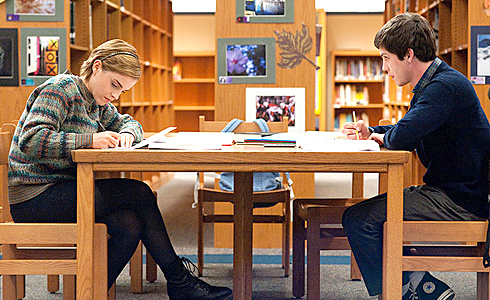
Although “The Perks of Being a Wallflower” flew under the mainstream radar, the film should not be forgotten. The movie is based on the novel by the same name and written by Stephen Chbosky (“Rent”) who also wrote the adapted screenplay and directed the film. “Perks” takes an earnest look at the human condition, exploring the idea that life gets complicated and not everything ends perfectly.
The film follows the story of Charlie (Logan Lerman, “Percy Jackson & the Olympians: The Lightning Thief”), a friendless freshman in high school with a history of psychological breakdowns. As he tries to navigate the murky waters of high school, he finds kinship with seniors Sam (Emma Watson) and Patrick (Ezra Miller) and the three instantly connect.
The movie follows these three and a few other close friends as they navigate issues of love, trepidation of what the future holds and what it means to be young. Sprinkled with unexpected humor, the mood is kept light even when heavy, dramatic issues are explored.
Lerman does a wonderful job of playing the lost, lovestruck Charlie who, at times, narrates the film in an epistolary fashion. His narrations add a personality to the film; the viewers feel like they’re part of the story instead of just looking in from the outside. He plays a tough role, often having to play the awkward freshman, life of the party and mental nutcase at the same time.
Watson’s role in the film is a refreshing change from her role in the “Harry Potter” series. Playing Sam, a girl who started high school drinking too much and sleeping around, she later discovers herself as an open-minded free spirit. Throughout the movie the Sam and Charlie become increasingly close, creating a convincing romantic subplot with excellent onscreen chemistry.
Music plays a large role in the film, using 20th century hits to set the time period. Cassettes are exchanged between friends, lovers and everyone in between, each with original mixes that represent a time and place. Every song represents a moment, an exchange and an emotion. By the end, moviegoers feel that music was more of a way of communication for the characters.
The movie’s message of “life happens” is presented in an offbeat way. There is nothing overly perfected or clichéd about the way the plot progresses. The ideas are simple – good things happens to bad people, people change and life will go on – but these ideas are addressed with shocking examples; with events that happen everyday but no one wants to admit. The no-nonsense look at youth and its complicated development will be relatable to viewers high school age and older.
Although the movie might leave some in a solemn mood, others will enjoy the realism the film offers. Viewers will love the complexity of the characters and watching them navigate the imperfect world humans exist in, never taking that path alone and always with a good cassette in hand.











